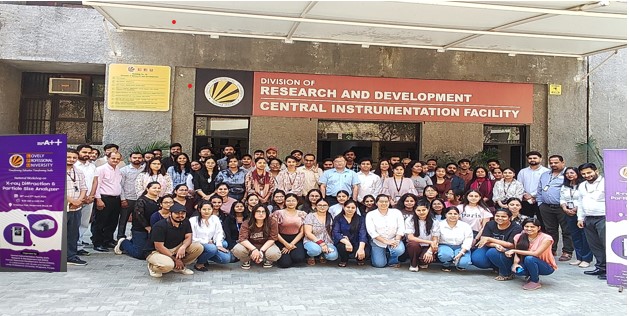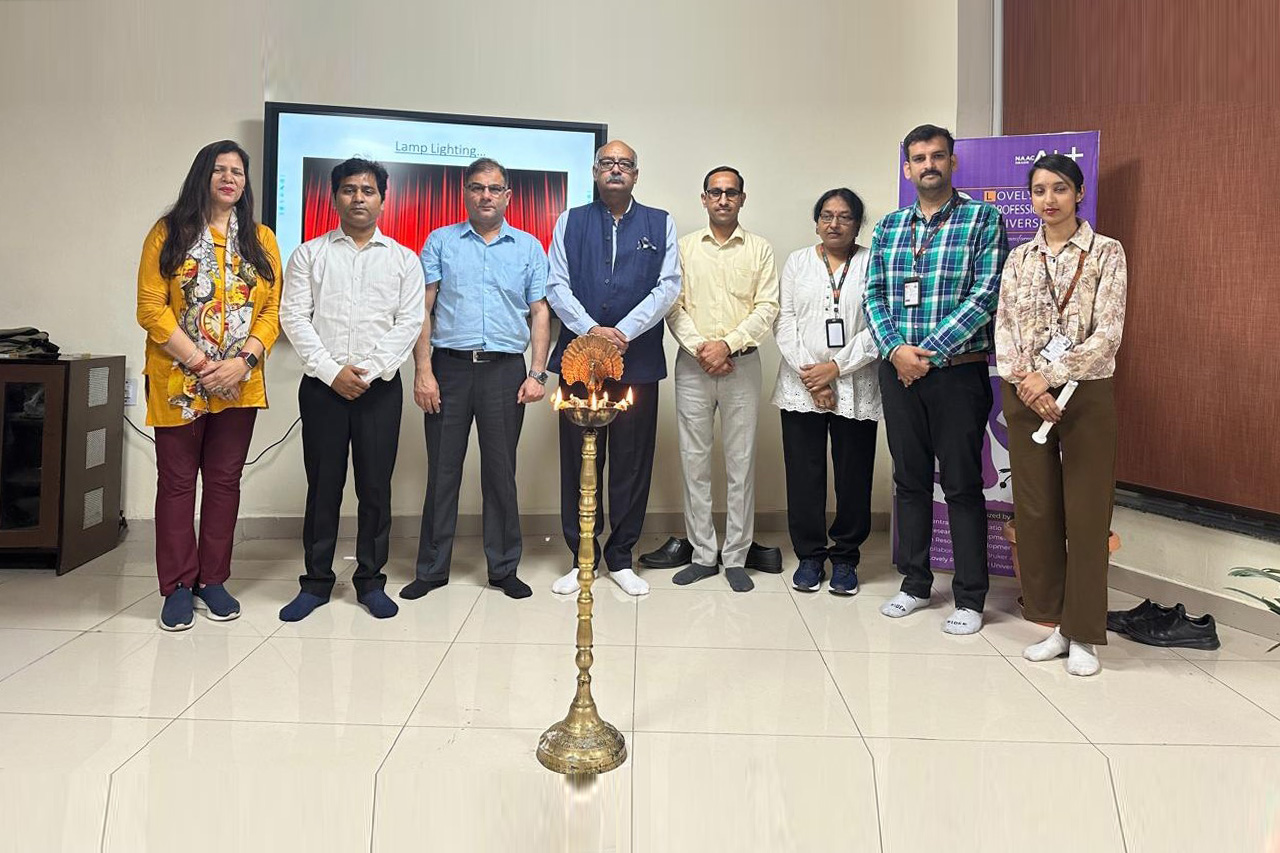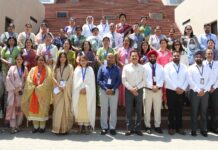X-ray Diffraction is a powerful analytical technique used to study the atomic and molecular structure of materials. By shining X-rays onto a sample, scientists can analyze the scattering pattern to determine the arrangement of atoms within the material. On the other hand, a Particle Size Analyzer is a sophisticated instrument used to measure the size distribution of particles in a sample. It utilizes techniques such as laser diffraction, dynamic light scattering, or sedimentation to accurately determine the particle size distribution, enabling researchers to understand the physical properties and behaviour of particulate materials. In this context, the Central Instrumentation Facility (CIF), Research and Development Cell (RdC) in collaboration with the Human Resource Development Center, Lovely Professional University conducted a ‘National Workshop on X-ray Diffraction and Particle Size Analyzer’ w.e.f. April 26, 2024 to April 27, 2024.
The course aimed at developing the understanding and skill of using advanced material characterization techniques i.e. X-ray Diffraction (XRD) and Particle Size and Zeta Potential Analyzer (PSA), basic construction of the machines, preparation of test samples for characterization and understanding different software interfaces for data measurement handling.
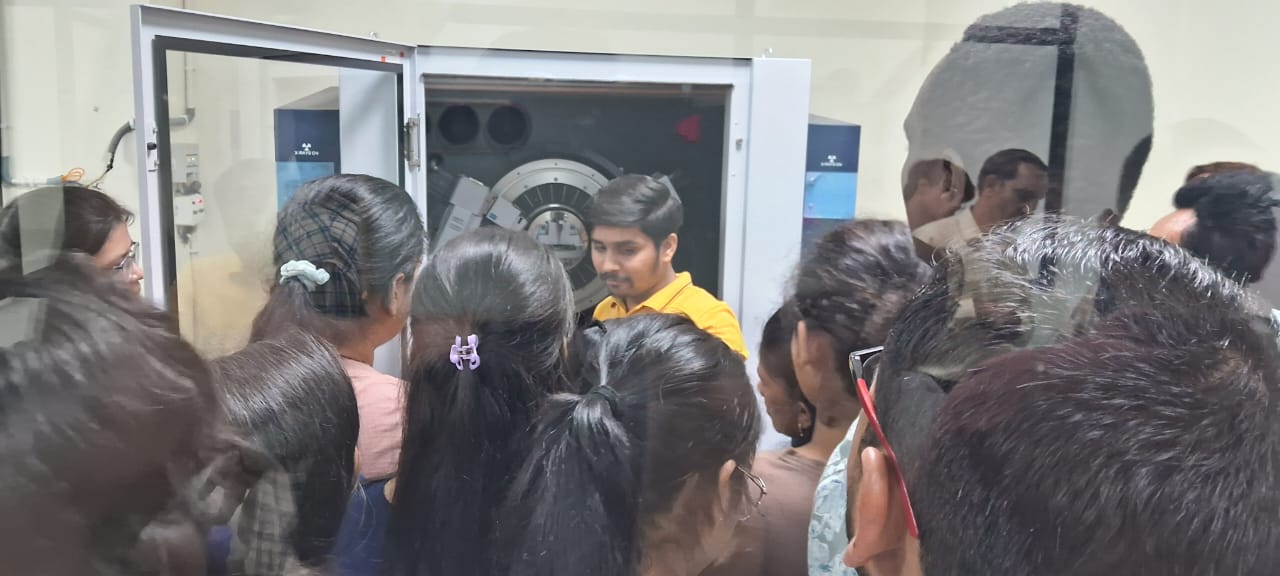
Dr. Lovi Raj Gupta, Pro Vice Chancellor, LPU in his inaugural address mentioned that this program will equip participants with the essential skills and knowledge of advanced material characterization techniques i.e. X-ray Diffraction (XRD) and Particle Size and Zeta Potential Analyzer (PSA). Moreover, he expressed confidence that the course’s deliberations, hands-on training and demonstration will help participants to develop tangible skills in using advanced material characterization techniques i.e. X-ray Diffraction (XRD) and Particle Size and Zeta Potential Analyzer (PSA), basic construction of the machines, preparation of test sample for characterization and understanding different software interfaces for data measurement handling.
The resource panel included Dr. Atul Khanna, Professor and Head of Physics Department and Dean Alumni at Guru Nanak Dev University (GNDU), Amritsar, Mr. Mohit Pandey, Service Engineer Bruker India Scientific Pvt. Ltd., Mr. Sombir, Manager, Customer Support, AIMIL, Dr. Nupur Prasad, CIF, RDC, LPU, Dr. Amrinder Mehta, CIF, RDC, LPU and Ms. Vaidehi Katoch, CIF, RDC, LPU.
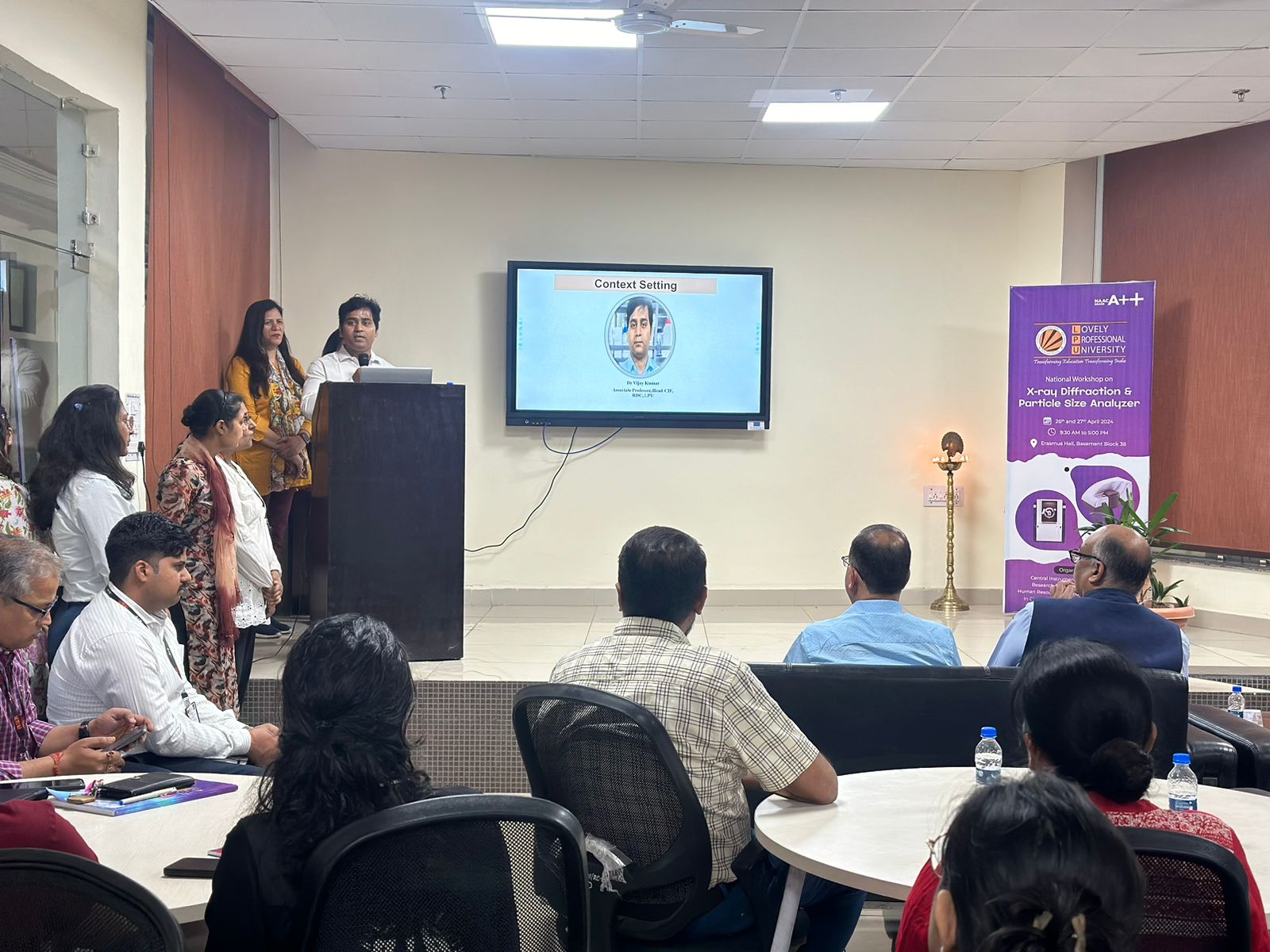
After the inauguration of the program, Dr. Atul Khanna took the stage, he meticulously unraveled the intricate workings of X-ray Diffraction, shedding light on its fundamental principles. With a blend of expertise and expressiveness, he captivated the audience, igniting a spark of curiosity and understanding Following Dr. Khanna’s enlightening discourse, Mr. Mohit Pandey stepped forward to conduct a captivating demonstration. Through his insightful presentation, participants were not only enlightened but also empowered with practical knowledge, enriching their learning experience. Continuing the journey of exploration, Mr. Sombir delved deep into the realm of Particle Size Analysis.
On day two, the exploration continued with Dr. Nupur Prasad taking center stage to elaborate further on Particle Size Analysis. With her expertise, participants embarked on a journey of discovery, unravelling the mysteries of particle behaviour and characteristics. Dr. Amrinder Mehta gave hands-on training on X-ray Diffraction. Through patient guidance and meticulous instruction, participants were equipped with the skills and knowledge needed to navigate the complexities of this powerful technique, ensuring a thorough grasp of its nuances. Ms. Vaidehi Katochc conducted a practical session on Particle Size Analysis. With her guidance, participants delved deeper into the practical application of theoretical concepts, cementing their understanding and paving the way for further exploration and discovery.
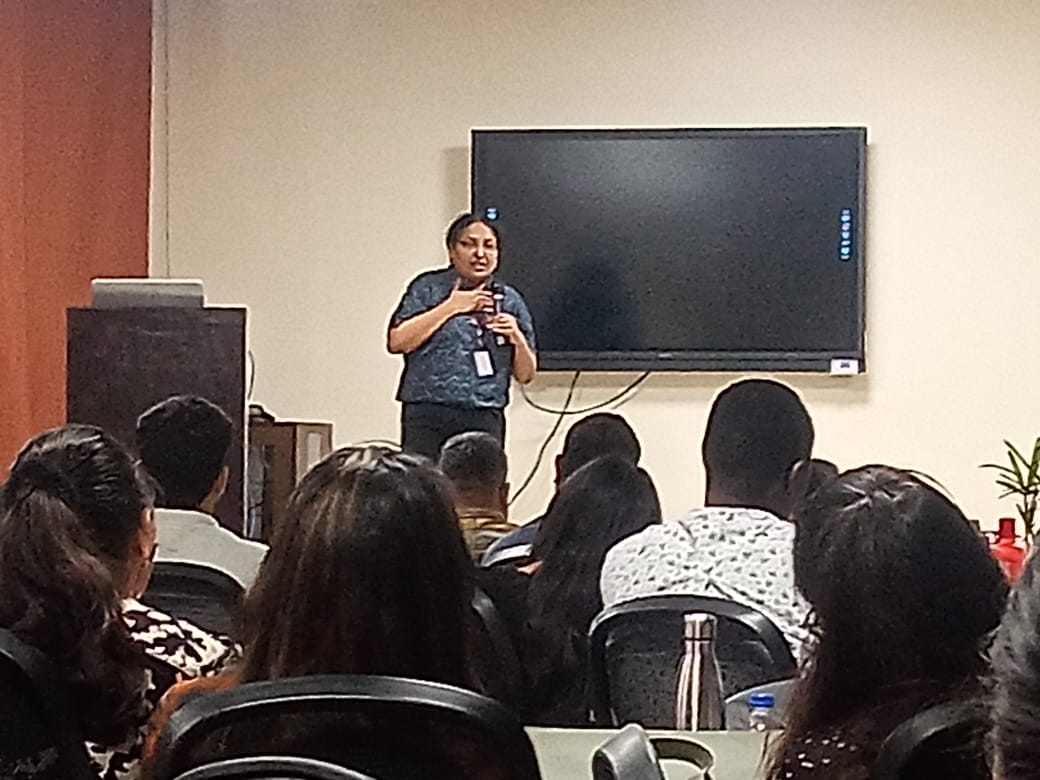
Subject Matter Experts (SMEs) strategically included a blend of theoretical instruction, practical demonstrations, and hands-on exercises, ensuring participants gained a comprehensive understanding of the topics covered, and fostering an engaging and interactive learning environment. Post-training evaluation serves a crucial role in gauging the efficacy of the STC. MCQ-based post-training evaluation was conducted.
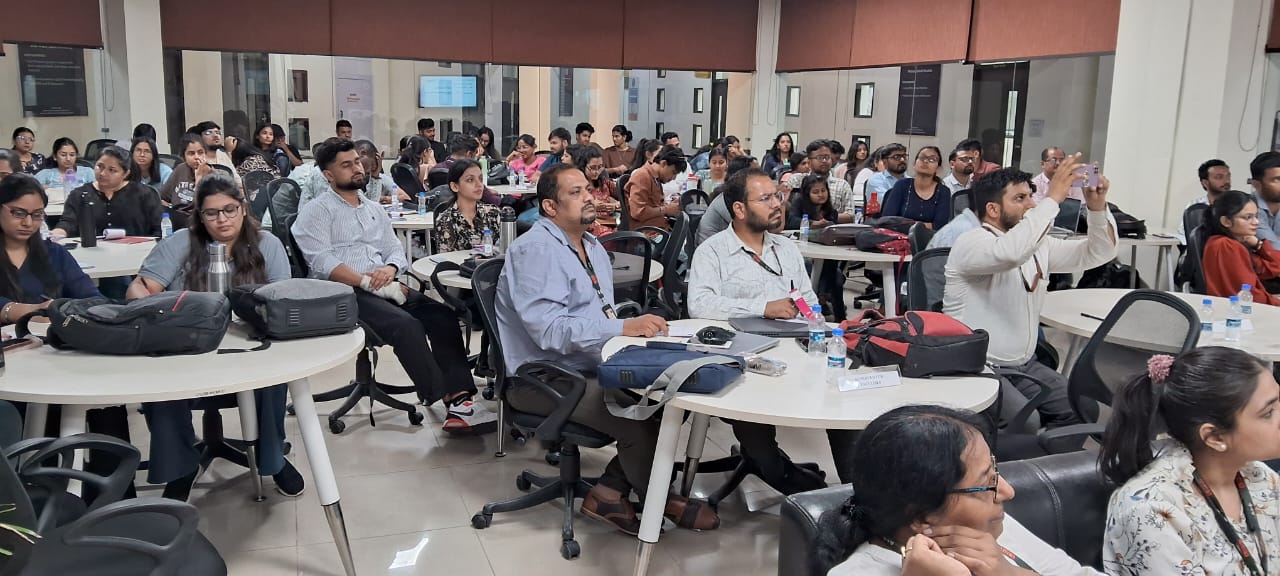
Dr. Vijay Kumar, Associate Professor, Head-CIF, RDC, LPU, and convener of the program applauded the organizing team and resource persons for conducting a meaningful short-term course, successful in meeting participants’ expectations. Co-cordinator of the program, Dr. Savita Gupta, Professor, Head- Department of Faculty Development coordinator of the program proposed a formal vote of thanks. Feedback was solicited from the participants in response to which they appreciated the gesture shown by the LPU-HRDC in terms of choice of SMEs and curriculum framed to make us clear about the advanced material characterization techniques i.e. X-ray Diffraction (XRD) and Particle Size and Zeta Potential Analyzer (PSA).
